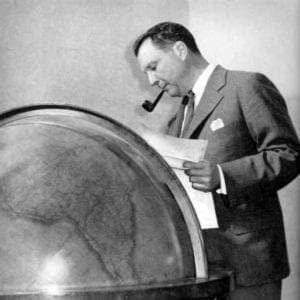 As a hospitality market, Malaysia is as complex as it is compelling. Vibrant, pulsating and full of potential, it has soared over recent years in the upscale tiers. Now it is facing a period of change. The opportunism and entrepreneurialism that has defined the market faces a less certain future as the issue of oversupply looms.
As a hospitality market, Malaysia is as complex as it is compelling. Vibrant, pulsating and full of potential, it has soared over recent years in the upscale tiers. Now it is facing a period of change. The opportunism and entrepreneurialism that has defined the market faces a less certain future as the issue of oversupply looms.
Its an understandable concern when you look at the numbers. With almost 1,000 hotels in KL, including more than 400 budget hotels, totalling around 56,000 rooms, the city is oversupplied to the tune of two rooms for each of the 12 million visitors expected this year.
However, if the capital faces tough times for hotel operators in the short term, the longer term view and wider national picture is more positive. Malaysia remains very much one of the region’s most stable and attractive nations for business and leisure travellers.
International visitor arrivals continue to grow impressively, with January to October 2014 arrivals jumping 9.6 percent, translating to 22.9 million tourists, compared to 20.9 million for the same period the year before.
Singapore remains the overwhelming top source of arrivals with approximately 51 percent, while Indonesia is a distance second with 10 percent. China saw a 12 percent decline as of YTD June 2015, but still ranking as the third largest source market with approximately 6 percent of total arrivals.
Mainland Chinese arrivals grew 18 percent and 29 percent in May and June 2015 following consistent months of decline after the twin Malaysia Airlines disasters. Passenger movements at KL International Airport reached 49 million, up 3 percent from the previous year. KLIA is the 4th busiest airport in Asia after Hong Kong, Jakarta and Singapore.
A recent World Bank Group report finds that Malaysia has retained its position among the top 20 economies worldwide and first among emerging economies in East Asia on the ease of doing business.
It’s hard to argue with Tourism Malaysia’s Sydney Director, Roslan Abdullah, who points out that Malaysia remains one of “the safest, most politically stable and value-for-money destinations in South East Asia. “Factor in friendly people, amazing cuisine and almost unparalleled diversity in terms of our tourism offering, and we can virtually accommodate every type of traveller,” he said.
Two big factors that appear on the hospitality landscape in the medium to long term are the inexorable rise of the Millennials, or Generation Y, and the paradigm shift caused by one of the brands closest to their hearts, hopes and dreams.
Airbnb came out of nowhere, and is now everywhere, making inroads into traditional hotel market share across every sector and demographic. It is experiential, networked and informal, reviewable in real time and an avatar of the shared economy. This makes the Airbnb experience Millennial manna from heaven.
Malaysian hoteliers are by no means immune and in my view they should not become so fixated on the immediate supply glut that they lose sight of the big picture systemic changes and challenges which have gripped the industry.
A recent Havas Worldwide study looking at 16-34 year olds from 29 countries including Malaysia found Millennials have plenty of brand loyalty and love to give, but they feel they are not being taken seriously enough by brands. They are also aware of their influence, with almost half of them believing they have the power to help a brand succeed or fail.
Hotel brands, more than most, must relate to the Millennials as the Havas study further suggests brands need to talk to youth from a place of ‘engagement’ and ‘utility’, better understanding Millennial lifestyles, communication channels, social spheres, pop culture and digital identities.
Six in 10 youth believe that brands are an important part of the creative content online, and 63% say they encourage their friends to use the brands they really like. As far as pop culture goes, 48% of 16-34-year-olds report feeling more connected to brands that are involved in pop culture.
The millennial generation is fast moving, dynamic, tech focused, and highly entrepreneurial. Millennials aspire to achieve for themselves and their families, to grow legacies that compliment their parents’ values while adapting to the new market and opportunities, and carving out their own futures.
Excited, enthusiastic and energised they look for new choices – but in the hotel market they often draw only budget or frankly a little run down mid-tier family run hotel.
My opinion is that Millennials are underserved, ignored, and not treated with the respect their growing importance merits. I believe a great opportunity exists for investors and developers – creating, transforming and growing smart ‘Affordable Hospitality’ – the term I prefer – hotels which speak to guests’ aspirations, over-deliver on expectations and create lasting brand loyalty, not least from the elusive but loyal Millennials.
Our experience in Malaysia supports this directly. Vanguard Hotels and our investors are progressing positively with our commitment to introduce our mid range, affordable hospitality brand “Vivid” in George Town Penang by 2018. We believe that Penang is about to see a renaissance in terms of its offerings to the tourism industry with the creation of two strategically located convention centers which will add another dimension to the attraction of Penang, particularly for the M.I.C.E market.
This and the continued growth of the MM2H investment in the city make Penang an exciting and vibrant potential growth area for Vanguard Hotels. Currently, together with our on-going project in KL, this will amount to a US$40 million investment in Malaysia for the Vanguard Group.
The market is certainly on the move and we are growing with it. Others can too if the industry engages this sector with smart ideas, cool design and seamless technology, and they need to show their young guests that they are willing to listen. This will create an important connection and with that comes loyalty. If you have spoken to their needs and over-delivered, they’ll be back for more.
Hoteliers need to join the Millennials on their journey, understand their desires, feel their pain. It’s about making them feel good about a USD40 purchase; that it was a smart decision that will reward them with innovative and quality experiences. This is value.
Malaysia, like many other countries in the region, is on the cusp of change. Real change. This is being driven by the Millenials and offers an incredible opportunity to the hotel industry to innovate and embrace a future that will be driven by value and brand loyalty – and ultimately defined by affordable hospitality.
About the author
Bruce Musick is Group CEO of Vanguard Hotels Pte which designs, builds and operates affordable hotels in Southeast Asia. He is a 31-year veteran of the US, European and Asian hospitality industries which includes the past 22 years in Asia. Musick has held positions for both private and public companies that range from marketing, operations, distribution, new product development, financial management and executive management. He has lived and worked in most all of the key markets in which Vanguard is targeting, including Malaysia, Philippines and Indonesia. In his capacity as as the Group CEO, he oversees the overall business strategy, joint venture partners and investor relations.
Vanguard Hotels aims to become a market leader in the affordable hotel space in Asia, through the development of its own brands as well as joint venture partnerships for other branded products in selected markets. The company, headquartered in Singapore and with its Regional operating headquarters in Manila, is active in hotel development in the Philippines, Malaysia, Sri Lanka and Vietnam. For more information see: www.vanguardhotels.com.















